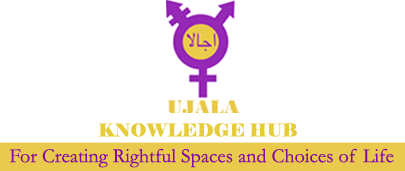Young people in Pakistan face major barriers to achieve their full potential. Young women are particularly vulnerable. According to the Pakistan Demographic Health Survey (2012-2013), fourteen per cent of girls, aged 15-19, have been married – this is seven times higher than their male counterparts of the same age. Eight per cent of young women, aged 15-19, have become pregnant, with the highest in Khyber Pakhtunkhwa (KP) at 10.3 per cent, followed by Sindh at 7.9 per cent. School dropout rates are also alarming – 49 per cent of girls and 40 per cent of boys are currently out of school.
Ujala ensures adolescents and young people remain a priority in Pakistan, advocating for adequate support and investments in their health, education and economic opportunity so they can become powerful drivers of change. In particular, Ujala works to build a better understanding of the current challenges youth face through advocates for investments in youth to governments, civil society, donors and private sector; and enhances the skills of young people so they can advocate for their own rights and development priorities. However, meaningful participation of youth is vital to realize their own development as well their communities.
UN General Assembly Resolution 58/133, reiterates the “importance of the full and effective participation of youth and youth organizations at the local, national, regional and international levels in promoting and implementing the World Programme of Action and in evaluating the progress achieved and the obstacles encountered in its implementation”. Youth participation has also been prioritized in other international agreements including in the Convention on the Rights of the Child. Recognizing the importance of youth participation UN finds it instrumental in achieving SDGs and FP2020 commitment.

